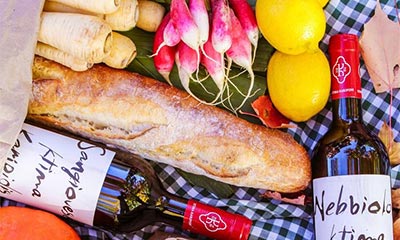The Growing Varieties of Moroccan Olive Oil
Distinguishing
between premium olive oil and ordinary olive oil can be tricky sometimes.
Factors like the difference between virgin and extra virgin, why some region is
better, and why it is acidity in oil matters, are challenging to master. There
are Moroccan Olive Oil experts
who have mastered the above factors, and their family has been farming the
olive for centuries and manufacturing the Morocco Olive oil.
The
perfect olives grow atop the Atlas Mountain ridges deep in Morocco, providing
the climate that chaperones the growth. More than a million olive trees are
sustained by the rich soil of the mountain. The Olive Oil sector is a growing industry but still follows the
traditional way of manufacturing the Olive oil.
This
ensures that the olive oil manufactured isn't deficient from its valuable body,
enriching minerals, and there are no chemicals added to the product. This
process allows the olive oil to be pure and unadulterated.
Moroccan Olive Oil thrives on
being the best and most high-quality olive oil for the native food market and
the international food market. Morocco has always been the land of olives, and
over the centuries, it has become part of the culture, cuisines, and habits of
the natives. The passion for the production of olive oil has been passed from
generation to generation, bringing people together for hospitality and
connectivity.
The
olive horticulture has long been a part of the history of the region. The
native has a particular word to describe the cultivation of an olive tree; it
is known as azemmour meaning it cannot be attached to any Semitic root. The
cultivation of the olive oil dates back to the Roman Empire; they used to grow
the olive tree horticulture to maintain social peace.
To
maintain the quality of the Morocco
Olive Oil, many rules and actions have been taken by the government and
sector core team. Also, the International Olive Council guidelines are followed
to the letter. The olive oil production is carried out considering various
factors like the type of species physiology and climate requirements.
To
optimize yield and to get better quality of olive oil, more and more fruiting
techniques implemented, which results in shaping up the trees better suited for
mechanization within the orchids. Due to the regular implementation of
sustainable production practices, the Moroccan olive oil industry is able to produce the olive oil
of international standards.
The
distinctive taste of Morocco
Olive oil is due to the presence of variety called Picholine,
which is characterized due to its strong adaptation of the Moroccan soil and
its atmosphere and high polyphenol levels. There are different varieties of
olive oil like
·
Moroccan picholine, which is very
heterogeneous and contains around sixteen to twenty-two per cent of the oil.
·
Haouzia variety, which is a type of
Moroccan picholine, and it has the vigor of medium to strong.
·
Menera variety has intense green
fruitiness and comes in specific flavors like almond and tomato.
Over
the years, the olive oil manufacturing sector of Morocco made their niche in
the international food market due to the health benefits their virgin oil
provides.
The
author depicts Moroccan Olive Oil as
the perfect cooking oil, particularly if you really want to flavor your
delicious recipes. This oil is used as a fried medium, a marinating product, a
coating, etc. For more info, contact our service providers.


Comments